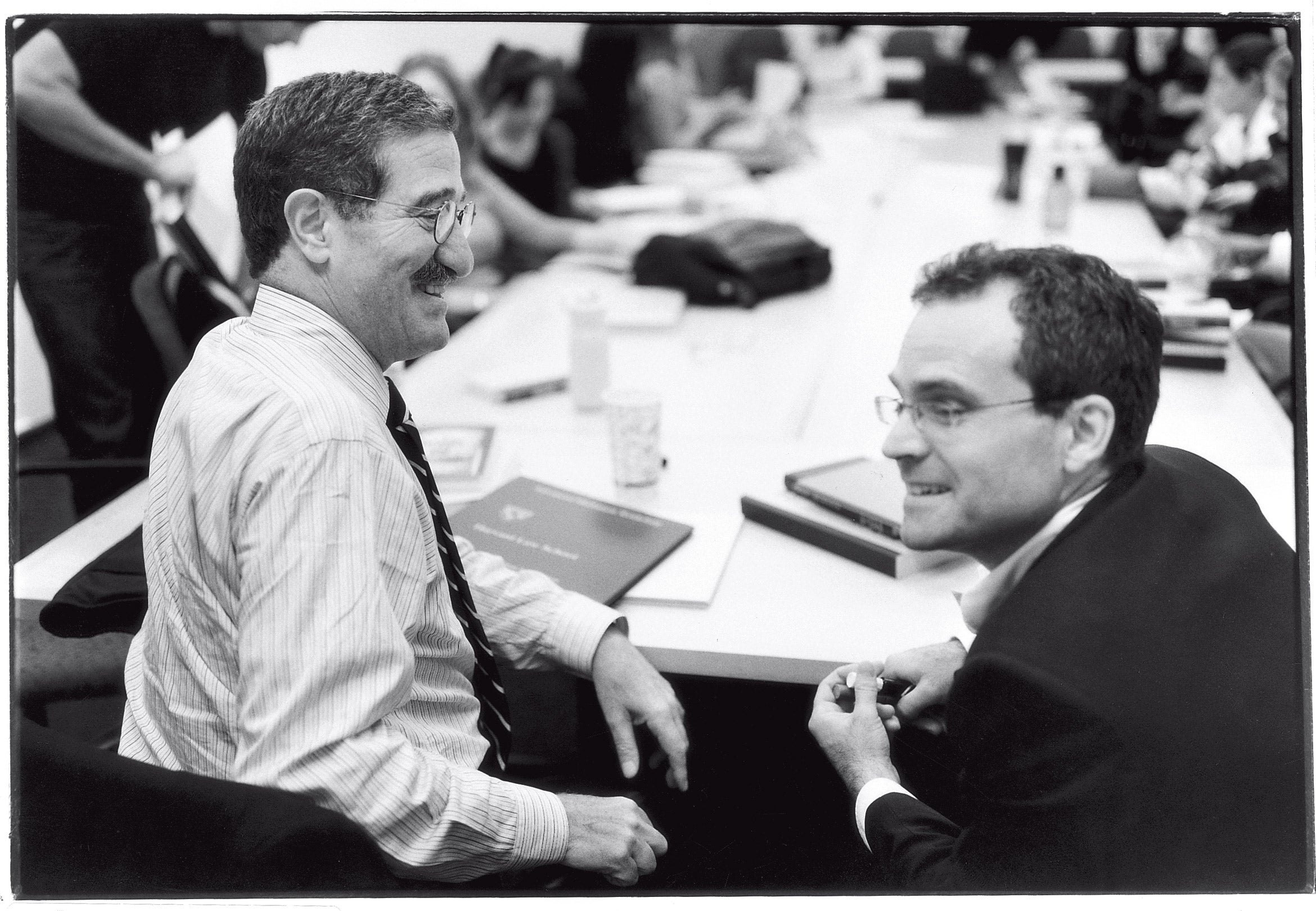On a day when Israeli and Palestinian forces clashed in Gaza and negotiations in the region were at a standstill, a group of Harvard Law students in a classroom half a world away examined some of the challenges that have made the negotiation process so difficult in the Middle East and other lands torn by ethnic and religious strife.
In a seminar titled Negotiating Ethnic Conflict, Professor Robert Mnookin ’68, together with Ehud Eiran, an Israeli lawyer and former assistant foreign policy adviser to Israeli Prime Minister Ehud Barak, led a group of 17 American and foreign students through the complicated histories–plural–of the region in the last half century, with special emphasis on the way each side brings its own story, or historical narrative, to the negotiating table.
“Each side’s version of what has happened in the past can be so strikingly different from the other’s that, from a negotiation standpoint, the issue is whether it is important that the two narratives somehow be reconciled, or brought into congruence as to at least some of what happened,” Mnookin said.
“What to Israelis is an act of Palestinian aggression is to Palestinians an act of self-defense, and vice versa,” said one student after examining the narratives on both sides. “They both see themselves as victims who have suffered historically, mainly at the hands of the other side, with little or no acknowledgment of the pain they have inflicted in return.”
Among negotiation theorists, Mnookin explained, there are two camps. The first believes that a negotiated settlement cannot occur without at least some adjustment in the historical narrative that each side is wedded to when it first comes to the table. The second camp believes it is fruitless to try to persuade people to alter their views of their histories, and that negotiation should instead focus exclusively on common interests. The interest-based approach has traditionally been favored by U.S. negotiators, Eiran noted. But Mnookin asked students to consider whether negotiators should attempt to reconcile narrative differences.
While the seminar focuses mainly on the Israeli-Palestinian conflict, with special emphasis on Jewish settlements in the West Bank and Gaza, the students were also scheduled to examine ethnic and religious clashes in Northern Ireland, Cyprus, the former Yugoslavia, Kashmir and South Africa.
